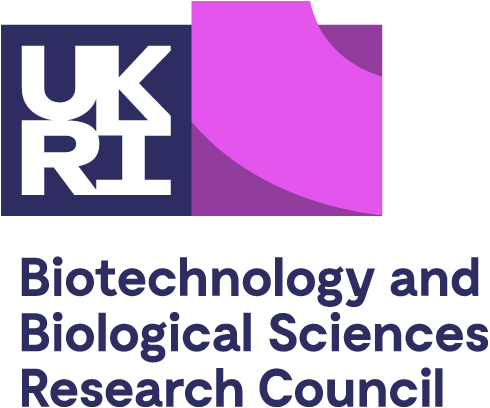This page provides information and resources about the involvement of animals in research.
Legislation and guidance changes and it is your responsibility to make sure you comply with the law.
The Biotechnology and Biological Sciences Research Council (BBSRC) supports the continued involvement of animals in scientific research, but only when the following strict conditions are met:
- researchers must provide sound scientific justification in funding applications for the involvement of animals
- researchers must have given due consideration to the replacement, refinement or reduction of the animals involved in the experiment
- it must not be scientifically acceptable to use non-animal alternatives in the research
- the research must be carried out in full compliance with current legislation
Read the UKRI policy on research and innovation involving animals.
Check your research meets animal welfare standards
Researchers and institutions that receive BBSRC funding for research using animals must comply with the Animals (Scientific Procedures) Act 1986 on GOV.UK.
When applying, you must demonstrate consideration of the ‘3Rs’ in your experimental design:
- replacement
- refinement
- reduction
Replacement
These are methods that avoid or replace the use of animals in an area where they would otherwise have been used.
Refinement
This includes improvements to scientific procedures and husbandry which minimise actual or potential:
- pain
- suffering
- distress
- lasting harm
This also includes improvements to animal welfare in situations where the use of animals is unavoidable.
Reduction
These are methods which minimise current and future animal use by enabling researchers to get either:
- comparable levels of information from fewer animals
- more information from the same number of animals
How to include animal involvement in your application
If your application includes animal involvement, you must download and complete the ‘Research involving the use of animals’ template .
This attachment must be submitted within the ‘Research involving the use of animals’ section of the application.
You must include additional information that will need to be reviewed by the National Centre for the Replacement, Refinement and Reduction of Animals in Research (NC3Rs) if your research involves any of the following:
- non-human primates
- cats
- dogs
- equines
- pigs
Overseas research involving animals
If you are proposing to conduct overseas research involving animals, it must be conducted in accordance with UKRI policy on involving animals in research. It is the responsibility of the project lead to ensure all named applicants in the UK and overseas are aware of this requirement.
You must provide a statement in the ‘Conducting research with animals overseas’ section of the application form to confirm that:
- all named applicants are aware of the requirements and have agreed to abide by them
- this overseas research will be conducted in accordance with welfare standards consistent with the principles of UK legislation
- the NC3R guidance on ‘Responsibility in the use of animals in bioscience research’ will be followed
Research involving certain species
You will need to additional questions if your research involves any of the following species:
- rodents
- rabbits
- sheep
- goats
- pigs
- cattle
- Xenopus laevis or Xenopus tropicalis
- zebra fish
Download and complete the relevant use of animals overseas checklist at NC3RS.
Your application will also need to be assessed by NC3Rs if your research involves:
- non-human primates
- cats
- dogs
- equines
- pigs
You’ll need to complete the ‘Research involving the use of animals’ template.
How to include animal costs in your application
A detailed justification of any animal costs incurred should be given in the ‘Resources and cost justification’ section.
You should also give details of any breeding programmes, if appropriate, to support the number of animals required.
You can include the costs of both the animals themselves and their maintenance. These costs may be shown as either:
- directly incurred
- directly allocated
Applications must include a breakdown of animal costs, including weekly maintenance charges.
You won’t be penalised for including costs to guarantee animal welfare, or if your application exceeds the required animal welfare standards.
Animal suppliers
If you’re considering the use of animals from commercial suppliers, you should make sure they’re UK-based wherever possible to minimise the risk of suffering during transport.
You must use Home Office-approved suppliers if your research involves any of the following:
- cats
- dogs
- primates
If your research involves rhesus macaques, we ask you to source these from the Medical Research Council Centre for Macaques (CFM) at Porton Down.
Experimental Design and Statistical Framework
In the ‘Experimental Design and Statistical Framework’ section of the ‘Research involving the use of animals’ template, include details of the:
- scientific rationale for the experimental design
- choice of animal model
- experimental plans
You must make a clear case for how the chosen design will enable the stated objectives of your research to be achieved.
NC3Rs has an Experimental Design Assistant tool that can help you describe your experimental plans and analyses.
Genetically altered animals
If your research involves genetically modified organisms, work must not start until approval has been received from the appropriate Local Ethical Committee or other appropriate authority.
Where experiments involve genetically altered animals, you should refer to the UKRI policy on research and innovation involving animals.
For research involving genetically altered mice, you should also refer to the report on ‘Assessing the welfare of genetically altered mice’ on Sage Journals.
Ask a question about animals in research
Email: eligibility@bbsrc.ac.uk
We will aim to respond within 15 working days.
Last updated: 21 July 2025


